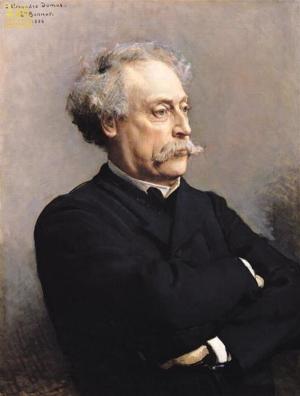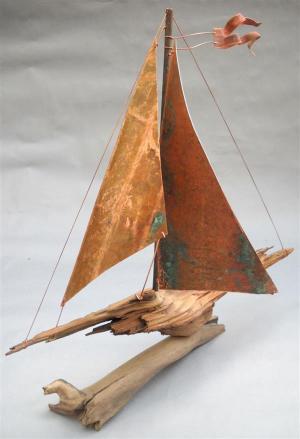| Author: | Sophocles | ISBN: | 9780599508057 |
| Publisher: | Lighthouse Books for Translation and Publishing | Publication: | August 24, 2019 |
| Imprint: | Language: | English |
| Author: | Sophocles |
| ISBN: | 9780599508057 |
| Publisher: | Lighthouse Books for Translation and Publishing |
| Publication: | August 24, 2019 |
| Imprint: | |
| Language: | English |
Sophocles' Ajax, or Aias, is a Greek tragedy written in the 5th century BCE. Ajax may be the earliest of Sophocles' seven tragedies to have survived, though it is probable that he had been composing plays for a quarter of a century already when it was first staged.
Sophocles was the younger contemporary of Aeschylus and the older contemporary of Euripides. He was born at Colonus, a village outside the walls of Athens, where his father, Sophillus, was a wealthy manufacturer of armour. Sophocles himself received a good education. Because of his beauty of physique, his athletic prowess, and his skill in music, he was chosen in 480, when he was 16, to lead the paean (choral chant to a god) celebrating the decisive Greek sea victory over the Persians at the Battle of Salamis. The relatively meagre information about Sophocles’ civic life suggests that he was a popular favourite who participated actively in his community and exercised outstanding artistic talents. In 442 he served as one of the treasurers responsible for receiving and managing tribute money from Athens’ subject-allies in the Delian League. In 440 he was elected one of the 10 stratēgoi (high executive officials who commanded the armed forces) as a junior colleague of Pericles. Sophocles later served as stratēgos perhaps twice again. In 413, then aged about 83, Sophocles was a proboulos, one of 10 advisory commissioners who were granted special powers and were entrusted with organizing Athens’ financial and domestic recovery after its terrible defeat at Syracuse in Sicily. Sophocles’ last recorded act was to lead a chorus in public mourning for his deceased rival, Euripides, before the festival of 406. He died that same year.
These few facts are about all that is known of Sophocles’ life. They imply steady and distinguished attachment to Athens, its government, religion, and social forms. Sophocles was wealthy from birth, highly educated, noted for his grace and charm, on easy terms with the leading families, a personal friend of prominent statesmen, and in many ways fortunate to have died before the final surrender of Athens to Sparta in 404. In one of his last plays, Oedipus at Colonus, he still affectionately praises both his own birthplace and the great city itself.
Sophocles won his first victory at the Dionysian dramatic festival in 468, however, defeating the great Aeschylus in the process. This began a career of unparalleled success and longevity. In total, Sophocles wrote 123 dramas for the festivals. Since each author who was chosen to enter the competition usually presented four plays, this means he must have competed about 30 times. Sophocles won perhaps as many as 24 victories, compared to 13 for Aeschylus and four for Euripides, and indeed he may have never received lower than second place in the competitions he entered.
Ancient authorities credit Sophocles with several major and minor dramatic innovations. Among the latter is his invention of some type of “scene paintings” or other pictorial prop to establish locale or atmosphere. He also may have increased the size of the chorus from 12 to 15 members.
Sophocles' Ajax, or Aias, is a Greek tragedy written in the 5th century BCE. Ajax may be the earliest of Sophocles' seven tragedies to have survived, though it is probable that he had been composing plays for a quarter of a century already when it was first staged.
Sophocles was the younger contemporary of Aeschylus and the older contemporary of Euripides. He was born at Colonus, a village outside the walls of Athens, where his father, Sophillus, was a wealthy manufacturer of armour. Sophocles himself received a good education. Because of his beauty of physique, his athletic prowess, and his skill in music, he was chosen in 480, when he was 16, to lead the paean (choral chant to a god) celebrating the decisive Greek sea victory over the Persians at the Battle of Salamis. The relatively meagre information about Sophocles’ civic life suggests that he was a popular favourite who participated actively in his community and exercised outstanding artistic talents. In 442 he served as one of the treasurers responsible for receiving and managing tribute money from Athens’ subject-allies in the Delian League. In 440 he was elected one of the 10 stratēgoi (high executive officials who commanded the armed forces) as a junior colleague of Pericles. Sophocles later served as stratēgos perhaps twice again. In 413, then aged about 83, Sophocles was a proboulos, one of 10 advisory commissioners who were granted special powers and were entrusted with organizing Athens’ financial and domestic recovery after its terrible defeat at Syracuse in Sicily. Sophocles’ last recorded act was to lead a chorus in public mourning for his deceased rival, Euripides, before the festival of 406. He died that same year.
These few facts are about all that is known of Sophocles’ life. They imply steady and distinguished attachment to Athens, its government, religion, and social forms. Sophocles was wealthy from birth, highly educated, noted for his grace and charm, on easy terms with the leading families, a personal friend of prominent statesmen, and in many ways fortunate to have died before the final surrender of Athens to Sparta in 404. In one of his last plays, Oedipus at Colonus, he still affectionately praises both his own birthplace and the great city itself.
Sophocles won his first victory at the Dionysian dramatic festival in 468, however, defeating the great Aeschylus in the process. This began a career of unparalleled success and longevity. In total, Sophocles wrote 123 dramas for the festivals. Since each author who was chosen to enter the competition usually presented four plays, this means he must have competed about 30 times. Sophocles won perhaps as many as 24 victories, compared to 13 for Aeschylus and four for Euripides, and indeed he may have never received lower than second place in the competitions he entered.
Ancient authorities credit Sophocles with several major and minor dramatic innovations. Among the latter is his invention of some type of “scene paintings” or other pictorial prop to establish locale or atmosphere. He also may have increased the size of the chorus from 12 to 15 members.















